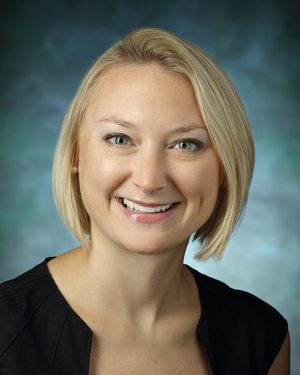The Myasthenia Gravis Center provides comprehensive care to patients with myasthenia gravis and other congenital disorders of the neuromuscular junction. We strive to offer patients a range of diagnostic procedures and treatment therapies, as well as the opportunity to participate in research to better understand these disorders.
Schedule an Appointment
Adult Neurology
Pediatric Neurology
International Patients
Our Approach
Diagnostic Testing
Thymectomy
Rehabilitation
Pulmonary Medicine
Infusion Treatments
Clinical Studies
Our Team
Ricardo Roda, MD, PhD
Dr. Ricardo Roda earned a combined MD/PhD degree from University of Rochester and completed an adult neurology residency, followed by a clinical neuromuscular fellowship at Johns Hopkins University School of Medicine. During residency, Dr. Roda developed a special interest in both auto-immune disorders and genetic disorders. Following residency, he spent three years in neurogenetics branch of National Institute of Neurological Disorders and Stroke (NINDS) working with Dr. Craig Blackstone, focusing on the use of the newer DNA sequencing techniques in genetic diagnosis, and in establishing genotype/phenotype correlations neuromuscular disorders. Dr. Roda received a Clinical Scientist Award in Myasthenia Gravis from the American Academy of Neurology/American Brain Foundation. His current clinical interests include developing testing strategies for undiagnosed genetic disorders and myasthenia gravis.

Sashagaye McNamee
Sashagaye has over 8 years of experience as a medical assistant, as well as phlebotomy experiences. She holds an Associate of Arts in General Studies degree. She ensures a smooth operation of the Myasthenia Gravis Clinic by scheduling appointments, maintaining patient information and coordinating clinical tasks, among other duties.

Abdullah AlQahanti, MD, MPH
Dr. Abdullah AlQahtani specializes in inherited and noninherited neuromuscular neurological diseases. His research focuses on the identification of biomarkers of disease progression in neuromuscular diseases.

Kemar Green, DO
Dr. Kemar Green is a neurologist with expertise in vestibular diseases, eye movement disorders and undifferentiated/rare neurologic disorders. He specializes in treating patients with disorders causing vestibular symptoms (dizziness, imbalance, vertigo, oscillopsia, imbalance, ataxia), abnormal eye movements, double vision and vision loss.

Extended Care Team
Research Team
Simone Thomas
Simone Thomas received her MS degree in Animal Science from the University of Hohenheim, Stuttgart, Germany. She started her professional career working as a scientific collaborator at the German Aerospace Center in Cologne and later worked in the human life sciences programs at the National Aeronautics and Space Administration (NASA) and the European Space Agency (ESA) before joining the Neurology department at Johns Hopkins.
Her research includes peripheral neuropathies caused by different underlying etiologies, including metabolic syndrome and neurotoxic chemotherapy agents. She is the Principal Investigator in several clinical natural history studies to better understand peripheral neuropathies. She is also involved in several efforts to develop better outcome measures to accurately assess efficacy of treatment in different neuromuscular conditions including polyneuropathies and myopathies. She is currently chairing the IMACS special interest group to develop better patient reported outcome measures for Inclusion Body Myositis (IBM).

Bryan Traynor, M.D., Ph.D.
Dr. Traynor is a neurologist and Senior Investigator at the National Institute on Aging and the National Center for Advancing Translational Sciences. Dr. Traynor is best known for his work aimed at understanding the genetic etiology of neurological diseases, such as myasthenia gravis. Working with the late Daniel Drachman at Johns Hopkins, his laboratory has published several genome-wide association studies of myasthenia gravis, identifying many genetic factors that drive susceptibility to the disease.
He received his medical degree, a Medical Doctorate, and a Doctor of Philosophy from University College Dublin. He also received a Master’s in Medical Science from HST Harvard-MIT. He completed a Neurology residency and fellowship training at Massachusetts General Hospital and Brigham and Women's Hospital, Boston, and was a Staff Neurologist at Harvard Medical School and Massachusetts General Hospital before moving to the NIH in 2005.

Ruth Chia, Ph.D.
Dr. Ruth Chia is a cell biologist by training but has a reformed specialty in data science and bioinformatics. She works with Dr. Bryan Traynor at the Laboratory of Neurogenetics at the National Institute on Aging (NIA), the National Institutes of Health (NIH).
She obtained her Ph.D. in 2008 from University College London, UK, under the supervision of Professor Elizabeth Fisher in neuroscience and genetics with a primary focus on modeling motor neuron disease in mouse mouse models and cells. She then joined Dr. Mark Cookson at the Laboratory of Neurogenetics at the NIH, where she investigated the biochemical and cellular function of a protein called LRRK2 and how mutations in LRRK2 cause Parkinson’s disease by employing various proteomics, pharmacological, and RNAi approaches.
Dr. Chia's current research covers a wide range of -omics type analyses to understand and uncover the genetic risks and potential gene targets amenable to therapeutic intervention in various neurodegenerative diseases, including but not limited to amyotrophic lateral sclerosis, frontotemporal dementia, Lewy body dementia, and myasthenia gravis.

Myasthenia Gravis Research
Research Areas
- Our collaboration with Drs. Bryan Traynor and Ruth Chia, geneticists at the National Institutes of Health, brings a precision medicine approach to diagnosing and understanding the disease mechanisms in myasthenia gravis. This involves using cutting-edge genetic and multi-omic methods to better understand the nature of myasthenia gravis and, more importantly, suggest novel therapeutic targets.
- Dr. Roda has served as an outside advisor to pharmaceutical companies and has participated in large therapeutic trials.
- Roda has an interest in novel antibodies in myasthenia gravis.
- We are involved in developing therapeutic options for those with genetic disorders of the neuromuscular junction.
Publications
- Implications of CHRNB1 and ERBB2 in the Pathobiology of Myasthenia
- Identification of Genetic Risk Loci and Prioritization of Genes and Pathways for Myasthenia Gravis: A Genome-Wide Association Study
- A Genome-Wide Association Study of Myasthenia Gravis
- Stopping Oral Steroid-Sparing Agents at Initiation of Rituximab in Myasthenia Gravis
- Effect of Initial Prednisone Dosing on Ocular Myasthenia Gravis Control
- Obstructive Sleep Apnoea and Hypoventilation in an Adult with Congenital Myasthenic Syndrome



